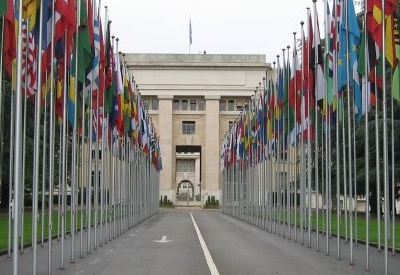BRICS: Neocolonialism or economic pragmatism
& Trade) morphed into the WTO (World
Trade Organization) in 1995, there has
been a plethora of trade organizations
emerging that are representing various
regions, globally. GATT was founded in
1948 and was a compact between post
WW2 industrial nations to promote trade
that was sanctioned by the U.N. With that,
we are experiencing an alphabet soup of
trade organizations that represents over
75% of the global population, considering
the graphic. Being a member state in such
an agreement provides multilateral
economic and political muscle in those
times that support needs to be drawn
from similar like-minded actors.
We can see the struggle that Canada had
adopting Free Trade (1989) and then
expanding that to NAFTA (North American
Free Trade Agreement) in 1994. The
liberalization of tariffs has made Canadian
goods more attractive for importers to
justify spending dollars out of their
budgets on Canadian products. Yet, has
membership in a trade organization lost
some of its eminence. Evidently, BRICS
members (Brazil, Russia, India, China, and
South Africa) feel stronger united, and,
with a burgeoning response to reliance on
the World Bank, politically invigorated.
The new BRICS bank with authorized
capital of 100 billion, and a separate
contingency reserve of another 100 billion,
promises to detract from Western leaders
influence in domestic affairs, as we have
seen in the aftermath of the situation in
the Ukraine with regards to Russian
President Vladimir Putin. Current sanctions
will have a deleterious effect on Russian
trade (a shift toward greener energy may
weaken demand for Russian oil and gas,)
though, in a prolonged standoff with the
West, Russia can tap some reserve cash to
smooth over some difficulties.
As a catalyst for its members, the new
bank acts as a gateway for membership
unto BRICS and thus,expand the
group. Hence, members become privy to
economic stability or political malfeasance
from any of its members. President Putin
relishes the moment as the strength of
BRICS offers a ballast to the prospect of
losing Ukraine to membership in NATO.
The “new cold war” is fought over
abbreviations, not on the ground (some
Crimean’s may disagree.)
The UN Security Council is in a decades
long stalemate that requires little leverage
against the P5 (five permanent members)
who need only to vote against proposed
sanctions to veto a bill. Expansion of the
P5 is another inglorious matter considering
the short-shrift the UN received from the
US over invading Iraq in 2003.
The new bank will provide developing
members, such as India, the financial
means to invest in and promote new
infrastructure projects, while abstaining
from political dialogue related to
ideological differences; the World Bank is
quite hesitant to loan funds to developing
nations that rely on coal generation for
their energy needs (see China & India.)
Though, China, with its economic might,
hardly requires a slush fund in the event of
recessionary times or a blunt cold
shoulder from the World Bank. However,
should domestic matters become
untenable in the wake of internal
dissension (up to 100,000 incidents per
year of civil disobedience,) China has a
strong support group to fall back on for
another day. Neocolonialism appears to be
the undercurrent for the motivation of
BRICS. South Africa, which boasts 11
official languages and is a disparate
population, faces no imminent threats
within its borders, although income
inequality remains a problem.
For BRICS, neocolonialism and economic
pragmatism are forces that should propel
this group towards greater economic
stability, provide them with a
counterweight against western nation-states
that question their internal policies,
while allowing them time to modernize
their legal system and democratize.
As of 2013, the five BRICS countries
represent almost 3 billion people with a
combined nominal GDP of US$16.039
trillion and an estimated US$4 trillion in
combined foreign reserves.[1][4]
As of 2014, the BRICS nations represented
18 percent of the world economy.[5] 1.
“World Economic Outlook”. IMF. April 2013
data. Retrieved 17 April 2013. 4.
“Amid BRICS’ rise and ‘Arab Spring’, a new
global order forms”. Christian Science
Monitor. 18 October 2011. Retrieved 20
October 2011. 5.yahoo.com: “BRICS to
launch bank, tighten Latin America ties” 11July 2014.





